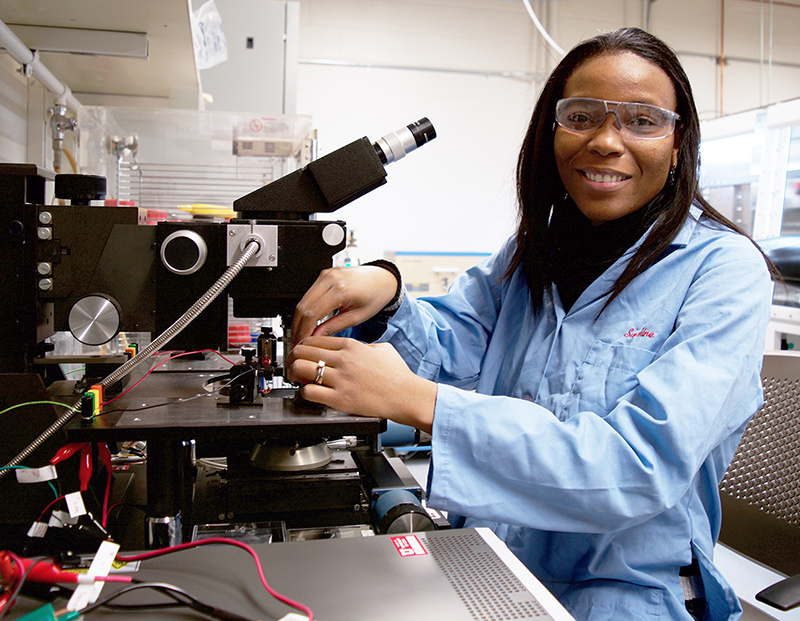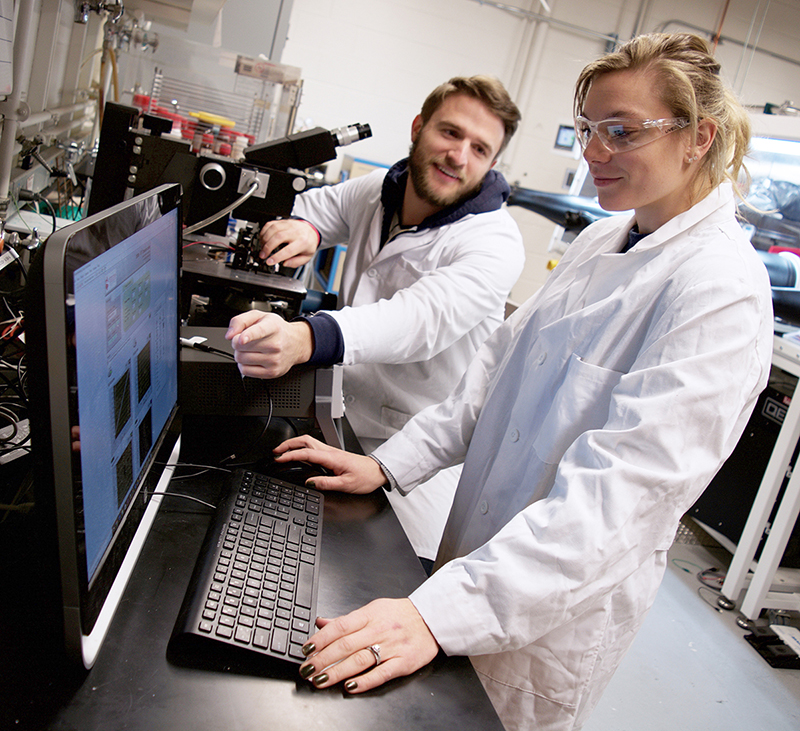Faculty Spotlight: Luisa Whittaker-Brooks
 Luisa Whittaker-Brooks, assistant professor of chemistry, is working on two critical challenges of our time
– alternative energy sources and low cost electronics for daily use.
Luisa Whittaker-Brooks, assistant professor of chemistry, is working on two critical challenges of our time
– alternative energy sources and low cost electronics for daily use.
“We plan to embark in these endeavors by synthesizing well-defined and high-quality materials for applications in solar energy conversion, thermoelectrics, batteries, and electronics,” says Luisa. “We will also test new hybrid concepts in terms of integrating several energy technologies that can simultaneously perform multiple tasks.”
For example, she hopes to fabricate a multimodal energy device that can scavenge both solar energy and waste heat – at the same time – for driving microsystems and nanosystems.
Luisa joined the Chemistry Department in 2014 and has established a vigorous research group and a Solid-State Chemistry and Nanostructured Thin Film Fabrication Lab.
The nano-fabrication lab is designed to study and manufacture ultra-thin electronics materials and nanoscale circuits for computers, cell phones, calculators, and television sets, among other items.
“Technology in consumer electronics is always moving towards device miniaturization so there is a constant search for materials that possess robust chemical, physical, and mechanical properties at the nanoscale level,” says Luisa.
Luisa’s research group collaborates with faculty on campus who are part of the NSF-supported Materials Research Science and Engineering Center (MRSEC). She also maintains various collaborative projects with faculty in the Department of Materials Science and Engineering and Electrical Engineering.
 Luisa’s own lab currently employs six graduate students and one undergraduate.
Luisa’s own lab currently employs six graduate students and one undergraduate.
In October 2015, Luisa received one of four Marion Milligan Mason Awards for Women in the Chemical Sciences from the American Association for the Advancement of Science (AAAS), the world’s largest general scientific society and publisher of the journal Science.
The Marion Milligan Mason Fund provides grants of $50,000 every other year to women researchers engaged in basic research in the chemical sciences.
Luisa’s project, “Environmentally-friendly and easily process able polymer-metal chalcogenides for thermoelectrics,” was selected from 190 proposals from 123 colleges and universities across the nation. In addition to research funding, the award provides leadership development and mentoring opportunities.
Luisa strives to mentor women and minorities to choose a career in the STEM disciplines. She credits her own pursuit of science to a teacher in high school in Panama, where she was born and raised.
